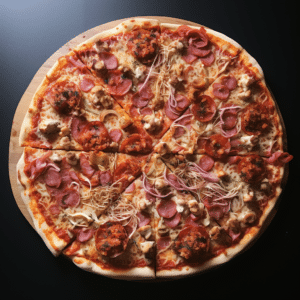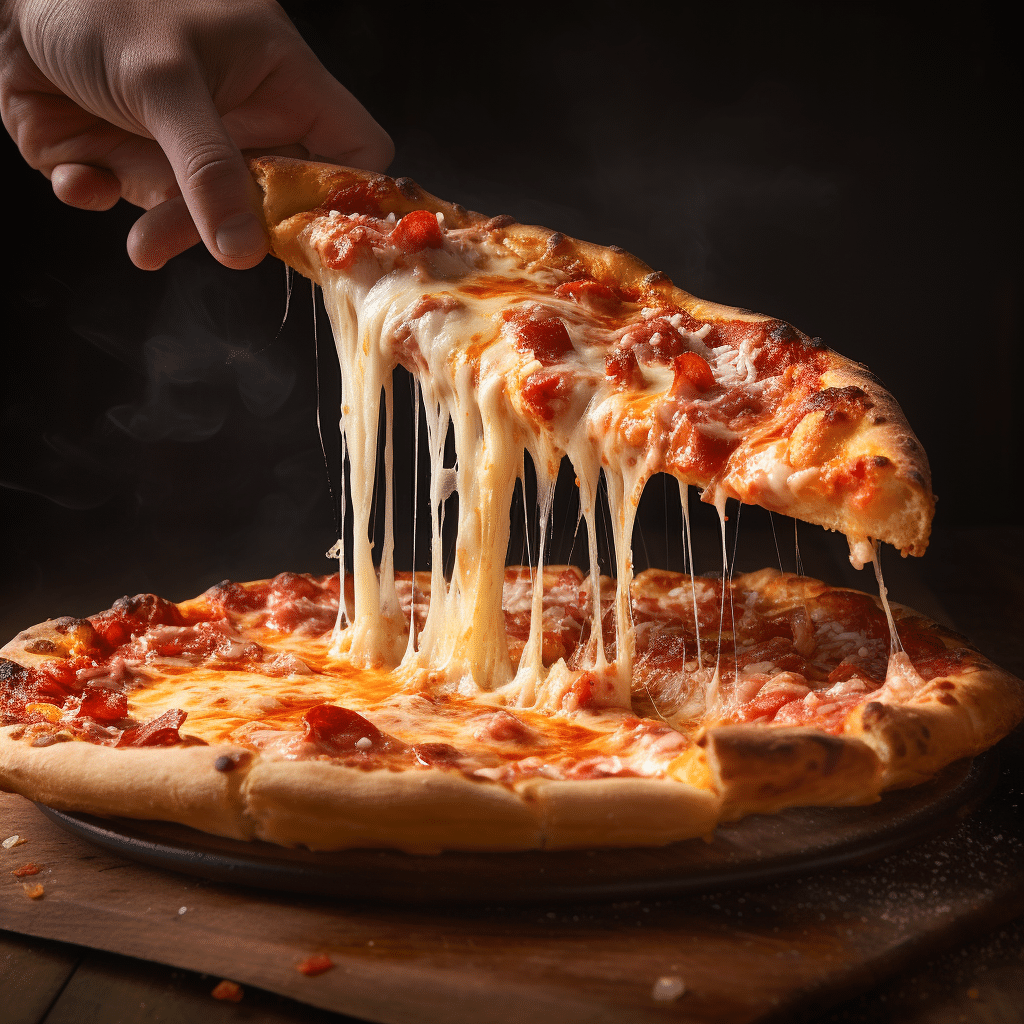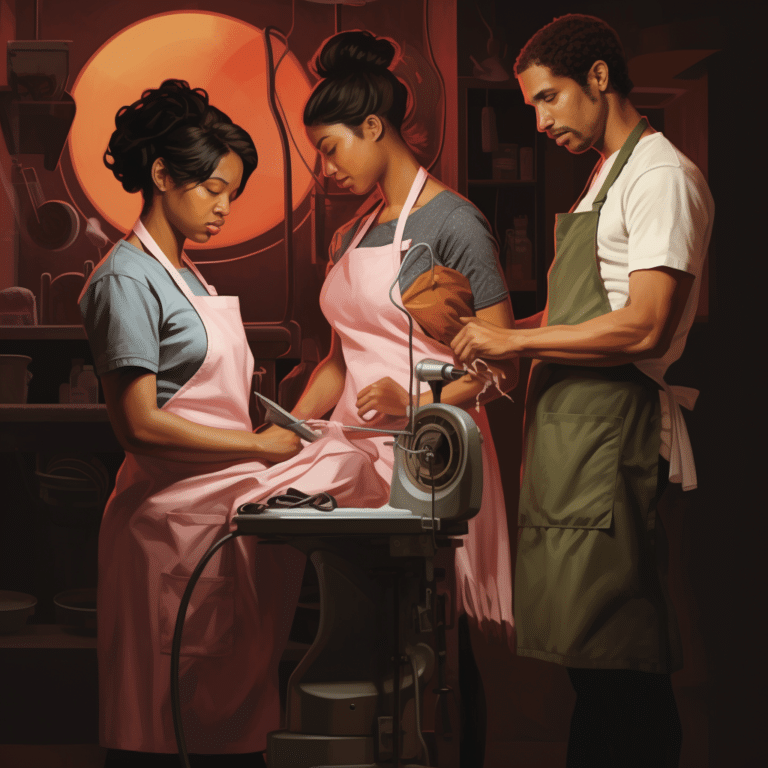Can You Eat Pizza With A Stoma?
Many people can eat a normal diet after recovering from an ostomy. However, it’s crucial to know which foods to eat or avoid during recovery with a new ostomy to prevent uncomfortable side effects like diarrhea or gas.
According to the U.S National Library of Medicine, an ostomy is a procedure that redirects waste from an opening in your belly (in this case, a stoma) into a pouch outside your body. The ostomy procedure is necessary if you have a gastrointestinal injury or other diseases like ulcerative colitis or Crohn’s.
There are two types of ostomies, ileostomy – a surgery connecting the bottom of the small intestine to the stoma, and colostomy, a surgery connecting the colon to the stoma. Here’s to more on whether you can eat pizza with a stoma. Read on!

Can You Eat Pizza With A Stoma?
It’s not recommended to eat pizza with a stoma. That’s because pizza is a highly processed food rich in unhealthy trans and saturated fats. Fats are more taxing and take longer to digest than carbs and proteins. This can make them lead to digestive discomforts like odor or gas. So, it’s best to avoid pizza and other fried or high-fat foods if you have a stoma.
Other Foods To Avoid If You Have A Stoma
Here are foods to avoid if you have a stoma:
Foods That Cause Gas
According to Northwestern Medicine, any food that made you gassy before the surgery is likely to continue causing the reaction after the ostomy. So, steer clear of such foods and other foods that are known to cause gas like:
- Broccoli.
- Legumes like beans, lentils, and peas.
- Asparagus.
- Onions.
- Brussels sprouts.
- Nuts.
- Cabbage.
- Alcohol, especially beer.
- Cauliflower.
- Carbonated beverages.
Foods That Cause Diarrhea
The foods you eat impact the consistency of stool in your ostomy bag. Some foods contribute to diarrhea, and limiting them is crucial. They include:
- Baked beans.
- Alcohol.
- Raw vegetables and fruits.
- Spicy foods.
- Dairy products.
- High-sugar foods like soda or chocolate.
Foods Rich In Fiber
High-fiber foods are hard to digest and may risk ostomy blockage. This may result in pain, swelling, odor, and clear discharge in your stoma bag.
Avoid high-fiber foods, especially in the weeks after your surgery. Examples of such foods include:
- Coconut.
- Dried fruits.
- Celery.
- Nuts.
- Salad.
- Mushrooms.
- Lentils, peas, and beans.
- Raw vegetables and fruits.
- Whole grains like whole or wild rice.
Foods That Cause Odor
Odor-causing foods pose the same discomfort and embarrassment as gas-producing foods. To avoid unpleasant smells in your stool after a new ostomy, avoid the following foods:
- Cabbage.
- Broccoli.
- Garlic.
- Brussels sprouts.
- Asparagus.
- Eggs.
- Dairy products.
- Legumes like beans, lentils, and peas.
Processed Foods
Processed foods are packed with added sugars or unhealthy fats that may cause gas, odor, or discomfort, so avoid processed foods like those with added sugars.
Foods To Eat With A Stoma
After the surgery, your diet will change throughout your recovery period, and you should be back to eating your normal pre-surgery diet after around six weeks. According to the United Ostomy Associations of America (UOAA), eating the following foods is recommended if recovering from an ostomy.
Clear Liquids
UOAA says that a clear liquid diet for people with a stoma bag is the best post-surgery diet. Prioritize these liquids in the first couple of days after surgery before starting to eat solids.
- Pulp-free juice like apple or grape juice.
- Clear nutrition or protein drinks like Ensure Clear.
- Herbal tea.
- Jell-O or fruit-flavored gelatin.
- Clear sodas like ginger ale.
- Clear broths and soups like chicken bouillon, vegetable, beef, or chicken broth.
- Clear hard candy like lemon drops.
- Electrolyte sports drinks.
- Fruit ice or ice pops.
Hydrating Fluids
Diarrhea, a common condition after an ostomy, can lead to dehydration if not managed well. So, it’s crucial to drink plenty of fluids. Six to eight glasses of water per day should be fine. However, consult your doctor to establish the best amount for you during your recovery.
Foods That Ease Diarrhea
According to UOAA, diarrhea may occur after an ostomy. Northwestern Memorial and Memorial Sloan Kettering Cancer Center advise eating foods that ease diarrhea following a colostomy or ileostomy. Such foods thicken the stool and replenish lost electrolytes like potassium and sodium.
They include:
- Bananas.
- Broth.
- Cheese.
- White rice.
- Applesauce.
- Smooth peanut butter.
Odor And Gas-Reducing Foods
Some foods can help reduce the gas or odors that you are experiencing. Northwestern Medicine reports gas-reducing foods as the following:
- Cranberry juice.
- Buttermilk.
- Parsley.
- Yogurt.
Low-Fiber Foods
Northwest Medicine recommends adding solid foods that are low in fiber after a couple of days following the procedure. When introducing these foods, do so slowly. Introduce one new food every few days to determine how your body reacts to it. If the food causes gastrointestinal symptoms like odor, gas, or diarrhea, stop eating it. Wait for a few weeks and eat the food to see how you’ll react to it.
Some low-fiber foods include:
- Seedless vegetables that are well cooked, like butternut squash and carrots.
- Fruits like bananas, soft melons, avocados, and other canned fruits (except pineapples).
- Smooth nut butter.
- Milk products if you’re not lactose intolerant ( if you are, try soy milk).
- Pulp-free juices except for grape or prune juice.
- Strained vegetable juice.
- Refined grains like white rice, white bread, pasta, crackers, and rolls.
- Beef, chicken, and pork cooked without excess fat.

Conclusion
If you have a stoma after undergoing an ileostomy or colostomy, you need to pay extra attention to the foods you eat, especially during recovery.
Generally, pizza is not recommended if you have a stoma and still recovering. That’s because it’s highly processed and high in saturated and trans fats. The fats take longer to digest and give your body extra work. So, steer clear of pizza and other high-fat foods like bacon.
Other foods to avoid if you have a stoma are high-fiber foods, foods that cause odor and gas, processed foods, and foods causing diarrhea. Eating foods that ease diarrhea, hydrate the body, reduce gas and odors, are low in fiber, and clear liquids are recommended.





